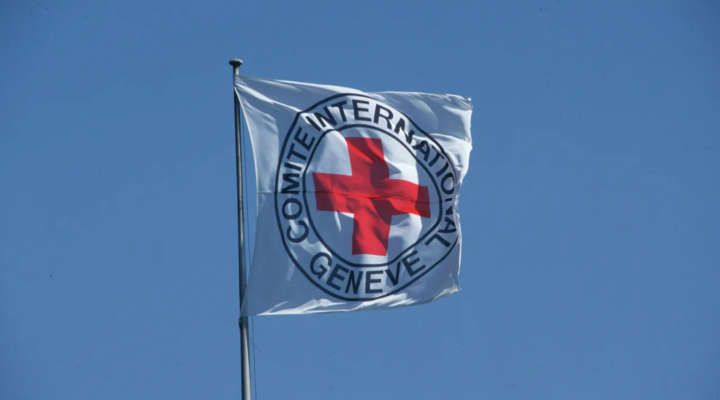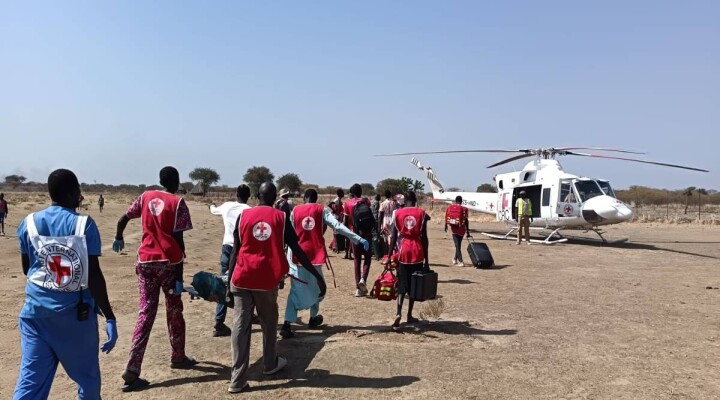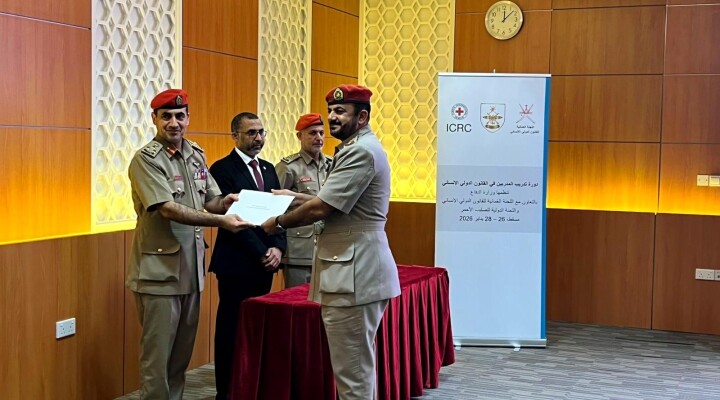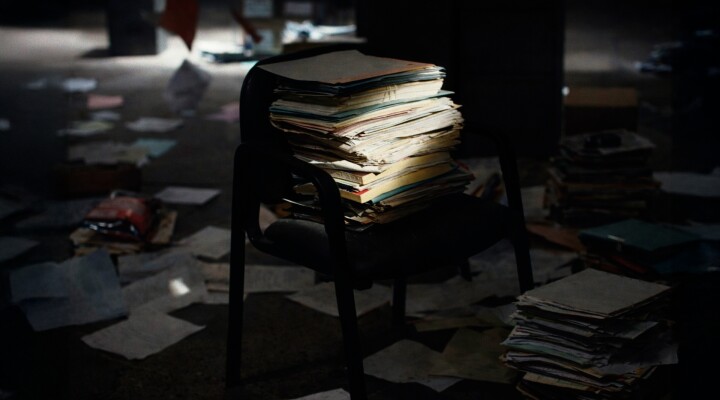As life slowly returns to cities and villages in Southern Lebanon following the announcement of a ceasefire agreement, many residents have found their homes severely damaged or destroyed.
"Hundreds of thousands of people have begun returning to their places of origin in the south to find significant destruction," said Shady Ramadan, head of the International Committee of the Red Cross (ICRC) sub-delegation in Tyre.
Tyre, a vibrant coastal city of 50,000 residents, is renowned for its resorts and archeological sites. However, the recent hostilities left its streets eerily deserted. Now, life is returning, with people and cars filling the once-empty streets.
Despite this semblance of normalcy, many residents who fled during the fighting found no homes to return to. Those fortunate to have a roof over their heads face a daily struggle without basic utilities like water and electricity.
"My house is damaged and uninhabitable. I want to return here, but we lack electricity, water, and necessities. It feels like the house, once fully furnished, now has nothing," said Kifah Awad, a mother of three, standing inside her bedroom where a gaping hole has replaced the wall.
In addition to the destruction, residents face another grave danger: unexploded weapons. Many sift through rubble to salvage belongings, unaware of the lurking threats.
"We need to provide them with safer behaviour guidance, and raise awareness about the risks, especially regarding unexploded ordnance. We've witnessed the recovery of large bombs that failed to detonate during the conflict, posing significant threats to lives," said Lee Hughes, an ICRC weapon contamination specialist.
Even with the ceasefire in place, the humanitarian needs of the local population remain immense. Many have lost everything and are struggling to rebuild their lives.
"As the ICRC, we are doing our best to address these needs, whether by rehabilitating infrastructure or supporting the livelihoods of those who have lost their means of income," added Ramadan.
SHOTLIST
Length: 10’32’’
Location: Tyre, southern Lebanon
Date of Filming: 10 December 2024
Camera: Imad Chaaban
Language: Arabic - English
Resolution: 4K
Copyright: ICRC access all
On Screen Credit: ICRC written or logo
|
00:00-00:47
|
Kifah Awad – Housewife and mother of 3
“On Tuesday, September 24, the war intensified significantly. We couldn’t bear it or stay in our house. By Wednesday morning, we left our home in Tyre and went to Beirut. We were deeply affected by what happened to our city and house, leaving in tears.”
My house is damaged and uninhabitable. I want to return here, but we lack electricity, water, and basic necessities. It feels like the house, once fully furnished, now has nothing.
We still feel unstable. We need security to feel comfortable and mentally at ease. Until now, we haven’t achieved that.”
|
|
00:48-01:44
|
Jihan Salem – Water and Habitat Engineer – ICRC Lebanon
“This is called Al Buss pumping station. It is located in Tyre, in the centre of the city. It feeds the whole city of Tyre, including one Palestinian refugee camp. It benefits more than 30,000 people. Since the incident that happened in this pumping station, they have been completely deprived of water.
To cope with this shortage, people have been using water trucking. The ICRC has been working in parallel with the water establishment to restore the quantity of water, so we did a bypass from the main water source, which is in Al Rashidiye area, and then connected the main water source with what has been left of the water pumping station here.
Once the project is finished, we will get back to approximately 80% of the original capacity. People are unable to afford more water trucking, so now they will be relieved from the cost of additional water trucking.”
|
|
01:45-02:39
|
Lee Hughes – Weapon Contamination Coordinator – ICRC Lebanon
“We're just going there to make sure there's nothing—no UXO (unexploded ordnance) in the area, no explosive remnants of war—nothing that's going to hurt the population as they come back to start rebuilding the water establishment plant here. We're just ensuring everything is safe and there's nothing down there that could hurt or injure them.
What we obviously need to provide them is safer behaviour guidance, making them aware of the risks, especially regarding UXO (unexploded ordnance). We've seen the military side of it, recovering large bombs that were dropped and failed to function. These bombs pose a significant threat and danger to life.
I think ultimately the message should be: if you don’t know what it is, don’t touch it. If in doubt, phone the emergency number. They’ll send someone out to evaluate the situation and, if necessary, remove it. By no means should you touch it or move it—just leave it alone.”
|
|
02:40-03:14
|
Safi Akani – Father of 2
“We're sad about the house. It's 120 years old—the ground floor is 120 years old. It's a traditional house. Now, we're four families all living together in one house. We're buying water from water trucks, the internet is very slow, and people in Tyre are struggling.
The amount of destruction is far too great for them to fix it alone. They need help. On their own, it would take a very long time for the city to return to what it was.
I've witnessed 10 wars in my lifetime—10! We're used to it. We are survivors.”
|
|
03:15-04:56
|
Shady Ramadan – Head of Tyre Subdelegation – ICRC Lebanon
“Since the implementation of the ceasefire, hundreds of thousands of people started returning to their places of origin here in the south. What they found is a huge, significant amount of destruction all across the different areas. Many, while they were happy to return, faced the agony of losing all their properties and livelihoods. Here, we're trying to do our best as the ICRC and respond to those needs, whether it is infrastructure rehabilitation or supporting the livelihoods of people who lost their livelihood. Another thing we're trying to work further on improving is the awareness of weapon contamination here in the area because there have been many incidents where people found themselves dealing with the remnants of war and so on.
War has a huge impact on the psychological well-being of people here. I would give you an example of children who lost their opportunity to go to proper schooling. I remember very well during our field trips seeing children, and all they talked about basically were the different weapons or the different bombings that they had been hearing. This definitely has a long-lasting impact that many people won’t necessarily see for the time being.
While people are trying their best to restore their lives, a lot of them have lost members of their families or have been impacted or lost their houses and so on. This is something really, really concerning on the longer term.”
|
|
04:57-05:14
|
ICRC cars driving in Tyre arrive at the water establishment station, with the Mediterranean Sea visible on the way.
|
|
05:15-05:58
|
Scenes of destruction at the pumping station.
|
|
05:59-06:37
|
ICRC weapon contamination team working at the pumping station to ensure safety.
|
|
06:38-06:57
|
Workers repairing the damage at the pumping station under the supervision of the ICRC teams.
|
|
06:58-07:31
|
Water trucking in Tyre has become more common due to the damage to water stations across the area.
|
|
07:32-07:50
|
Scenes of destruction in the streets of Tyre.
|
|
07:51-09:03
|
Kifah enters her house, showing scenes of the destruction that occurred.
|
|
09:04-09:48
|
Safi in his house, checking the damage.
|
|
09:49-10 :13
|
A woman tries to climb the stairs of her destroyed home, holding her child.
|
|
10:14-10:25
|
A woman tries to search under the rubble of her house for anything she can retrieve.
|
|
10:26-10:32
|
A man smokes a cigarette on the balcony of his damaged house.
|
Ends
For further information, please contact:
Alyona Synenko, Media Relations delegate, asynenko@icrc.org
Crystal Wells, ICRC Geneva, +41 79 642 80 56, cwells@icrc.org press@icrc.org
About the ICRC
The International Committee of the Red Cross (ICRC) is a neutral, impartial and independent organization with an exclusively humanitarian mandate that stems from the Geneva Conventions of 1949. It helps people around the world affected by armed conflict and other violence, doing everything it can to protect their lives and dignity and to relieve their suffering, often alongside its Red Cross and Red Crescent partners.



